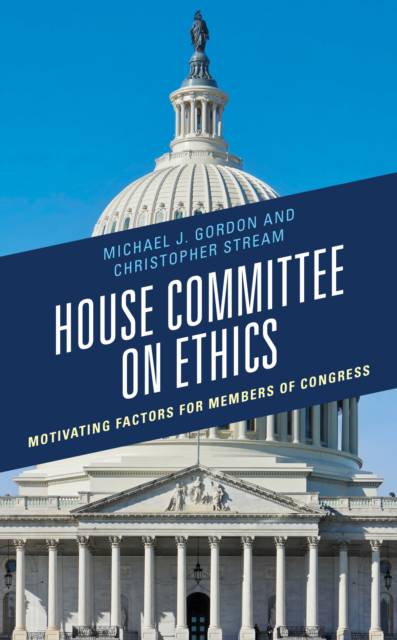
- Retrait gratuit dans votre magasin Club
- 7.000.000 titres dans notre catalogue
- Payer en toute sécurité
- Toujours un magasin près de chez vous
- Retrait gratuit dans votre magasin Club
- 7.000.0000 titres dans notre catalogue
- Payer en toute sécurité
- Toujours un magasin près de chez vous
House Committee on Ethics
Motivating Factors for Members of Congress
Michael J Gordon, Christopher Stream
145,45 €
+ 290 points
Description
The authors examine the internal and external motivating factors behind the actions of the House Committee on Ethics members by looking at the procedural efficiency of the Committee on Ethics (or lack thereof), as a natural consequence of the committee members' implicit public policy actions.
Spécifications
Parties prenantes
- Auteur(s) :
- Editeur:
Contenu
- Nombre de pages :
- 162
- Langue:
- Anglais
- Collection :
Caractéristiques
- EAN:
- 9781793621207
- Date de parution :
- 22-03-23
- Format:
- Livre relié
- Format numérique:
- Genaaid
- Dimensions :
- 152 mm x 229 mm
- Poids :
- 412 g

Les avis
Nous publions uniquement les avis qui respectent les conditions requises. Consultez nos conditions pour les avis.






